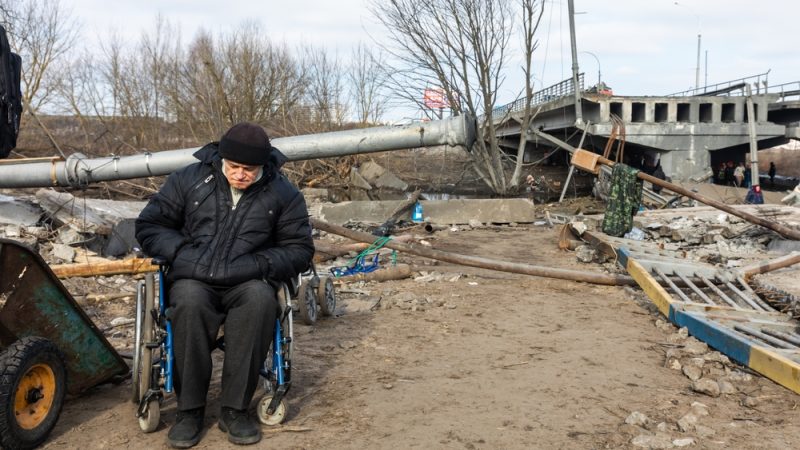The Forgotten Victims of War
May 16, 2022
With everything that has been going on with Ukraine and Russia, in the middle of it are the forgotten victims of the war. 4.8 million people have fled Ukraine leaving behind nearly 2.7 million people with disabilities to be at the mercy of Russia’s invasion.
Human rights organization Disability Rights International have found children tied to beds in overrun children’s homes with their caregivers fleeing to neighboring countries abandoning them. In the war, many people do not talk about those with mental health, people with disabilities, and those who are unable to care for themselves.
The UN Committee states that, “…there are ongoing reports that many people with disabilities, including children, are trapped or abandoned in their homes, residential care institutions and orphanages, with no access to life-sustaining medications, oxygen supplies, food, water, sanitation, support for daily living and other basic facilities.” They also add that women with disabilities are at a very high risk of rape and sexual violence by Russian forces. Russia had previously bombed a care home for disabled people.
There were also young, disabled Ukrainian swimmers who were stranded in Turkey. They came for a two-week training program and unbeknownst to them a week later Russia invaded Ukraine. Unsure of his fate, 15-year-old Sharkov asked CNN to send his family a message: “My dearest father and mother, I love you so much… I wish you happiness and health. Say ‘hello’ to my grandparents and my aunt.”
There is a woman, Olena Florek, who flew to Ukraine from Poland to rescue her paralyzed brother who she fears the “forgotten casualties of war” are people with disabilities. Florek traveled to Warsaw to try to get a UK visa for her brother Volodymyr where she spent weeks waiting for her disabled brother’s UK visa to be processed. Florek’s brother requires 24/7 care as he is paralyzed from the neck down due to his condition where he has cerebral palsy and is unable to speak. Florek states how,“When it is war, not many people talk about those with mental health, people with disabilities, care homes; we don’t hear or see or know, but they are there.” She also adds that “If I didn’t help, nobody would.”
A Disabled Ukrainian man, Oleksandr Nikulin, has been helping other disabled people to cross the border as he understands the struggle of it. He mentions that transporting refugees with disabilities requires special tools, a lot of attention, and accessible accommodations. Many organizations assisting refugees are not equipped to deal with those with disabilities. A volunteer at one of the borders has mentioned how they do not see any special provisions or accommodations for those with disabilities or the elderly such as wheelchair supports and transportations.
Although this is war, we must be attentive to not forget or leave anyone behind, especially those who require more attention and are unable to care for themselves.

